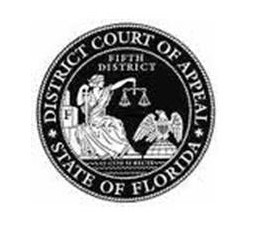The District Court of Appeal of Florida for the Fifth District recently held that a trial court’s refusal to extend the duration of a lis pendens on real property was a departure from the essential requirements of law.
A copy of the opinion is available at: http://www.5dca.org/Opinions/Opin2015/042715/5D14-4009.op.pdf
Due to a scrivener’s error by the closing agent, the real property that was supposed to have secured a loan was not encumbered by the mortgage. The lender sued to reform the loan documents and foreclose or, in the alternative, to impose an equitable lien against the subject property.
The lender moved to extend the lis pendens, which pursuant to subsection 48.32(2), Florida Statutes, expires “1 year from the commencement of the action … unless the relief sought is disclosed by the pending pleading to be founded on a duly recorded instrument or on a lien claimed under part I of chapter 713 against the property involved, except when the court extends the time of expiration on reasonable notice and for good cause.”
The trial court denied the motion to extend the lis pendens and the lender appealed, seeking a writ of certiorari, which is the vehicle to review an interlocutory order discharging a lis pendens. In order to prevail, a petitioner seeking the writ must show that the interlocutory order departs from the essential requirements of law and causes irreparable harm that cannot be correct on appeal post-judgment.
Reversing the trial court’s ruling, the Appellate Court noted that a lis pendens that is not based on a recorded instrument must be dissolved unless the proponent establishes a fair nexus between the legal or equitable ownership of the property and the lawsuit.
The Appellate Court found that the fair nexus requirement was clearly met because the petitioner/lender presented substantial evidence that supported either reformation of the mortgage to include the subject property or imposition of an equitable lien.
The Appellate Court also found that the statute’s good cause requirement for extending the lis pendens was met, even though the trial court failed to make any findings in its order, because it was undisputed that the petitioner/lender actively litigated the case, the lender’s interest was the same as when the case was commenced and still needed protection from potential third-party lienors, and the subject property was central to the underlying dispute.
Accordingly, the Appellate Court held that the lis pendens should have been extended in order to protect lender’s interest and warn third parties about the pending lawsuit’s potential effect on the property.
The Appellate Court quashed the trial court’s order denying the extension and remanded with directions to reinstate the lender’s lis pendens on the subject property, leaving the trial court free to exercise its discretion to decide whether a bond is required under subsection 48.23(3), Florida Statutes.



